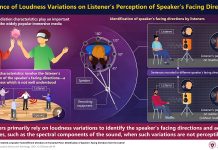
Research recently published in the International Journal of Data Analysis Techniques and Strategies has shed light on the potential for machine learning in mental health diagnostics.
Researchers from the Department of Computer Engineering and Applications at GLA University in Mathura, India, have developed a semi-supervised deep learning model capable of identifying signs of depression in online social media users.
The Challenge
Identifying individuals at risk for mental health problems is a growing concern in the digital age. As people increasingly spend time online, often working remotely and socially isolated, diagnosing mental health issues becomes a challenge.
Even for those who engage in face-to-face interactions, problems can be masked, making diagnosis difficult.
Given this backdrop, the use of algorithms to spot early signs of depression amid the overwhelming data on social media could be a significant breakthrough.
The Methodology
Researchers Gaurav Kumar Gupta and Dilip Kumar Sharma conducted a detailed analysis focusing on demographic information and content-related characteristics found in social media updates.
They employed a deep auto-encoder model that extracts patterns and statements often associated with symptoms of depression.
The algorithm’s capabilities are further enhanced when it has access to a user’s profile, helping to refine its diagnostics based on a composite of tweet depression scores, profile attributes, and other hybrid knowledge.
Improved Accuracy
The study claims an impressive 11% improvement in diagnostic accuracy compared to other methods.
This opens up the possibility of using this model as part of a multimodal approach to identify depression through other types of online content, like facial expressions, images, and videos.
Ethical and Practical Considerations
While the research presents a promising avenue for early intervention in mental health, it also raises ethical questions about privacy and data use.
How the diagnostic information is used would ultimately be a matter for discussion between individuals and their healthcare providers.
Conclusion
The study indicates a promising future for machine learning and artificial intelligence in healthcare diagnostics.
Such technology could potentially act as an early warning system, alerting individuals to seek professional advice, thus contributing to a proactive approach to mental health treatment.
However, the deployment of such systems will require careful ethical considerations, especially concerning data privacy and the potential for false positives or negatives.
If you care about health, please read studies that scientists find a core feature of depression and this metal in the brain strongly linked to depression.
For more information about mental health, please see recent studies that ultra-processed foods may make you feel depressed, and extra-virgin olive oil could reduce depression symptoms.
The research findings can be found in the International Journal of Data Analysis Techniques and Strategies.
Follow us on Twitter for more articles about this topic.
Copyright © 2023 Knowridge Science Report. All rights reserved.



